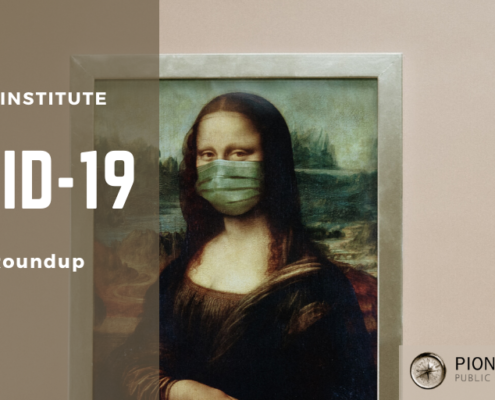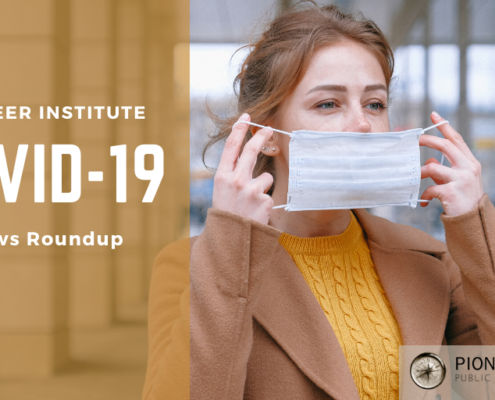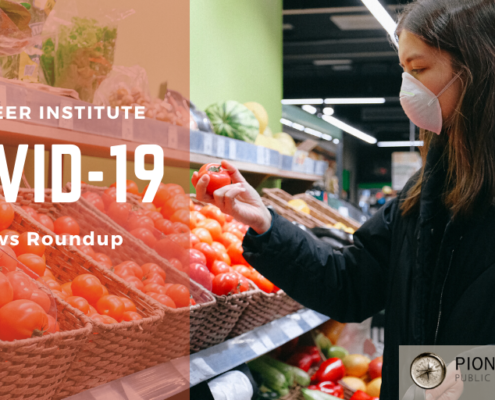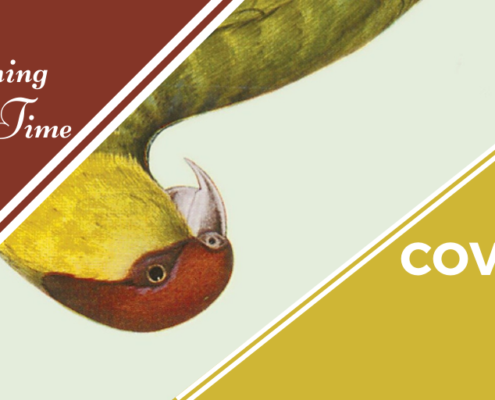Easthampton High Scores A National Educational Victory During The COVID-19 Pandemic
This op-ed originally appeared in WGBH News.
Since COVID-19 arrived, the bad news seems unending and recently released scores for the National Assessment of Educational Progress (NAEP) civics test were no exception. But thankfully, we have some fantastic news about civics education, and it comes from right here in Massachusetts.
This spring, Massachusetts’ Easthampton High School was crowned national champion in the “We the People: The Citizen and the Constitution” contest. The competition brings together about 1,200 students from across the country to answer civics questions based on America’s Founding Documents including the U.S. Constitution; The Federalist Papers; and U.S. Supreme Court decisions.
The Easthampton High School team, under the leadership of teacher Kelley Brown, won the state competition that was held in January at the Edward M. Kennedy Institute for the United States Senate in Boston. Ordinarily, the students would have headed to the Washington, D.C. area to compete in the national finals.
But the COVID-19 pandemic intervened. Instead, the “We the People” finals were held via Zoom, with students participating from their homes.
None of this stopped Kelley Brown or her team. The competition requires painstaking preparation. Students prepare statements, work on oral presentations, and anticipate questions from the judges, who include academics, lawyers, and state supreme court judges. All the while, Brown coordinated a team that was working online from disparate locations across their small city.
All that effort earned Brown and the Easthampton team the 2020 national championship.
I was pleased and fortunate to play a role in co-authoring Massachusetts’ 1993 Education Reform Act. One of the provisions of the law that I’m most proud of is the requirement that the Commonwealth’s students study our nation’s Founding Documents, as well as state and national history.
The Founding Fathers saw public education as the means for teaching students to become active citizens in American democracy, and civics is the most central expression of that mission.
But as the recent NAEP scores show, civics has hit upon hard times in American public education. For years, “We the People” received federal funding, but that ended in 2011 and it now relies entirely on private donations.
Here, retired Millbury High School social studies teacher and “We the People” statewide coordinator Roger Desrosiers and his late wife Claudette have served as Massachusetts’ first family of civic education, by keeping this vital program together body and soul in the Bay State.
Today, as the nation seems hopelessly polarized and long-accepted tenets of American democracy are being challenged, the decline of civics education is becoming even steeper. This is especially true during COVID-19.
That’s what makes the work of “We the People: The Citizen and the Constitution” and Easthampton’s success more important than ever. The program isn’t just a competition. It includes an academically rigorous curriculum about the history and principles of our constitutional republic, as well as congressional-style hearings that keep students and teachers engaged. Since it began in 1987, over 30 million students and 75,000 educators have participated.
Anyone who believes American history is the civic wellspring of our country should applaud this program’s indispensable teachers and students for promoting the ideals of constitutionalism and self-government.
This year, I’m particularly proud to congratulate Kelley Brown and her students at Easthampton High School for overcoming the worst pandemic in a century and emerging as national champions of the “We the People: The Citizen and the Constitution” contest.
Get Our COVID-19 News, Tips & Resources!











